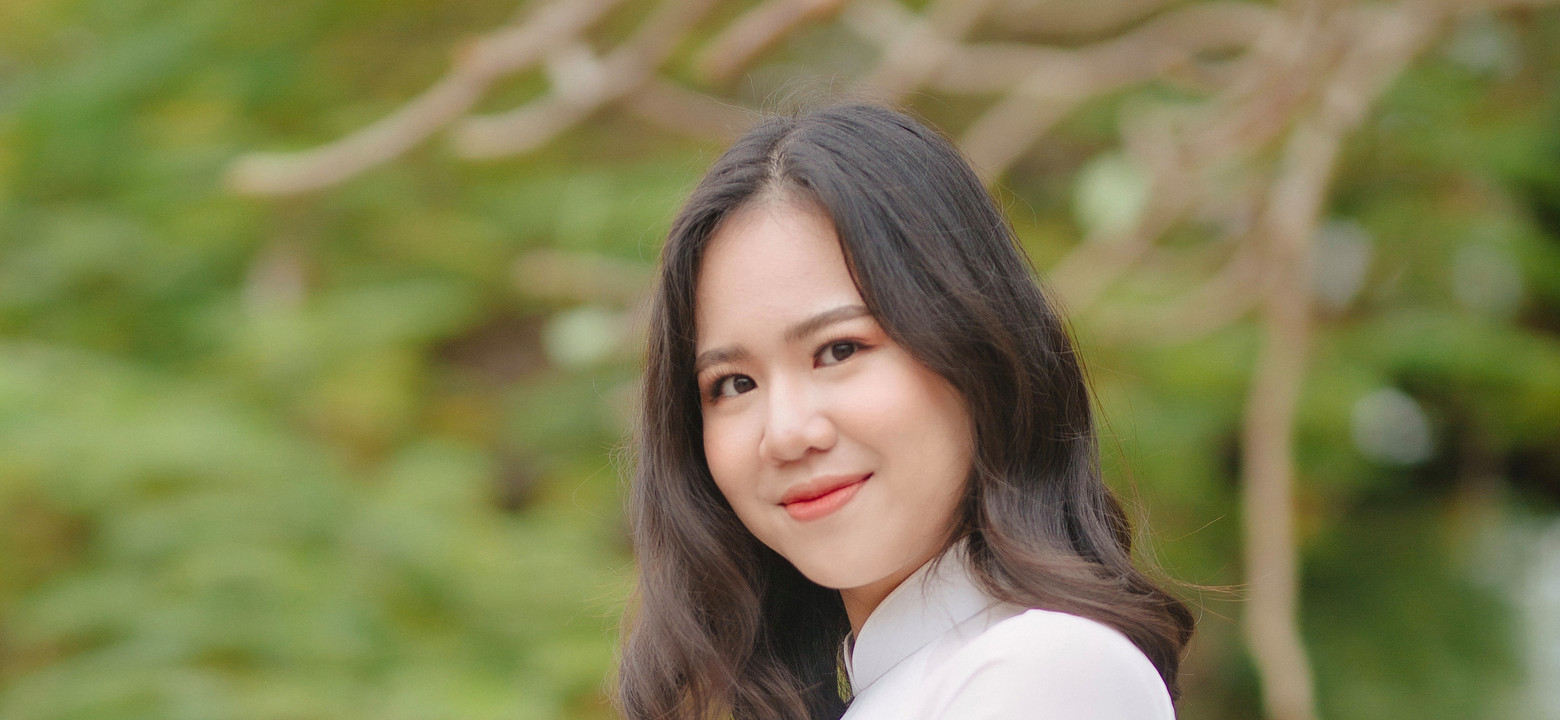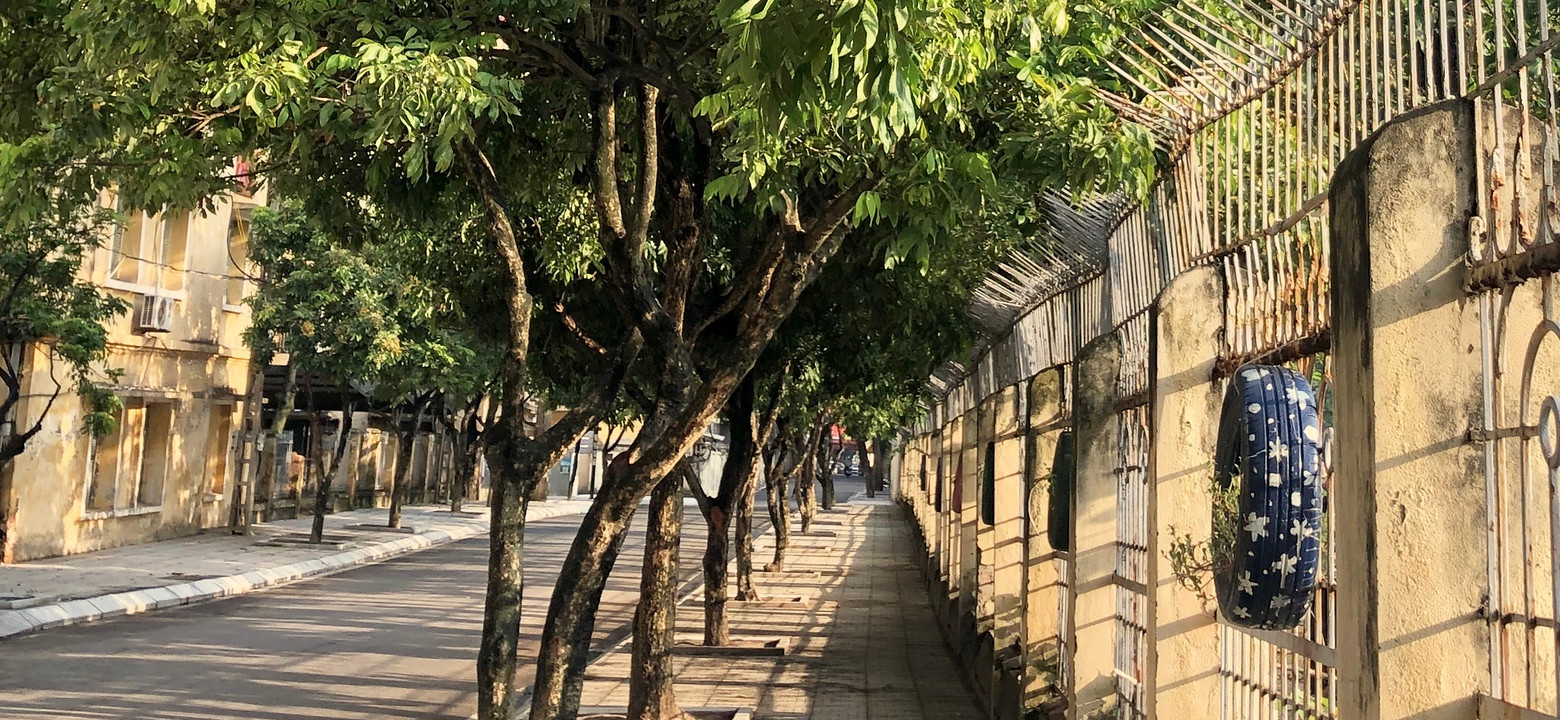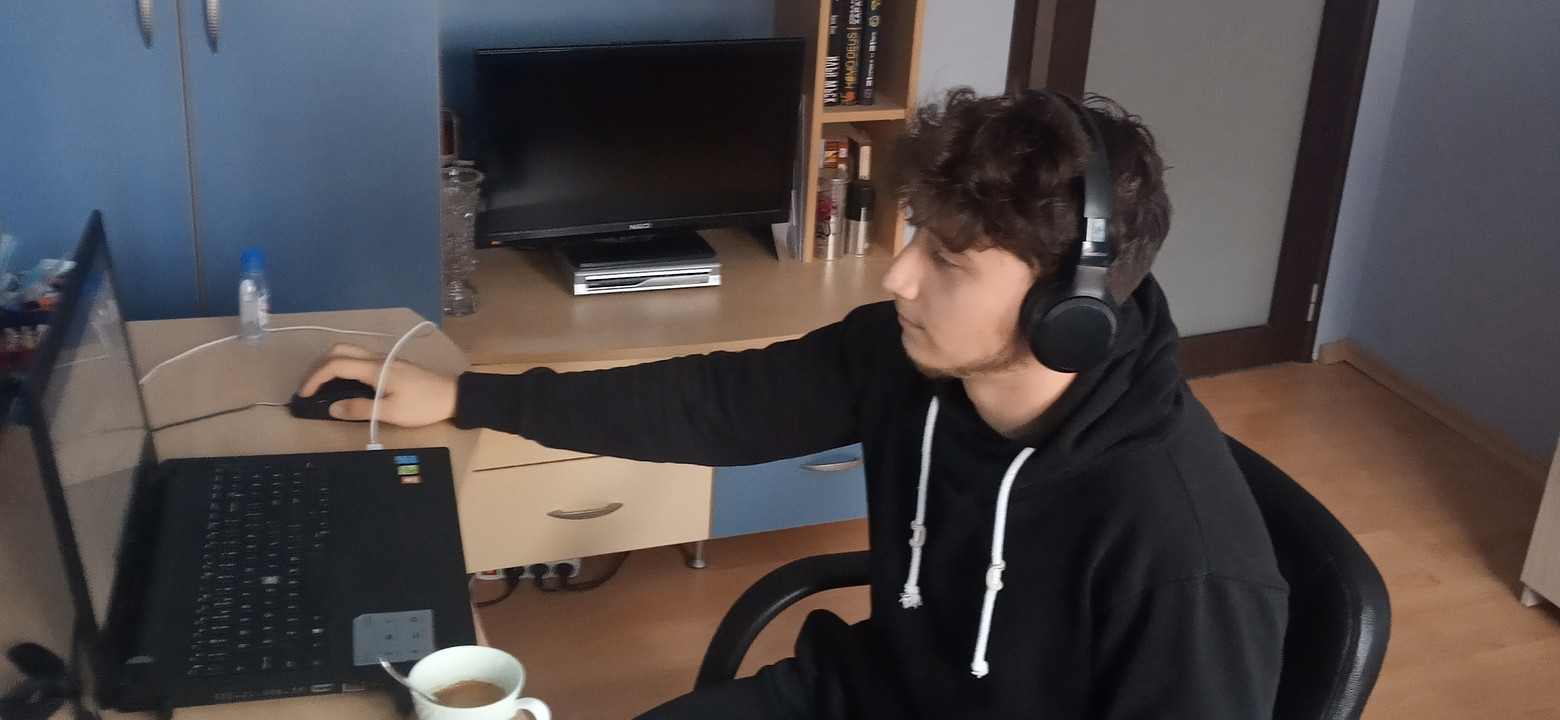For many, student life is the route to independence and adulthood. A phase of life full of new lessons, experiences and encounters. But what if you enter this new world in isolation; digitally, far away from the place where it all happens, without live contact with fellow students and teachers? "I've never been tested mentally as much as I am now."
Chi Tran from Hanoi is living proof that jet lag can occur without flying. "One of the main hurdles of having to study at a distance is the time difference," the 18-year-old Vietnamese says. "It took me a few weeks to get used to the new rhythm. Starting at 2 or 3 PM instead of early in the morning. I'm eating dinner alone, because I have classes until late or have to do group assignments. And then the clock was advanced one hour for Daylight Savings Time (DST). I wasn't familiar with that phenomenon and got completely confused." So, not completely 'at home' in time, comparable to a jet lag.

Chi Tran from Hanoi || Photo: Chi Tran
But she is at home in her surroundings, where it's six hours later than in the Netherlands. Chi tells her story from her room of 15 square meters, on the tenth floor, in an apartment she shares with her parents. The Skype connection is flawless, but the conversation is disturbed every now and then by a cacophony of honking and traffic noise. "This is how it is in the capital of Vietnam", says Chi, as she adjusts her camera to share a panoramic view of the metropolis. "It's noisy, but I'm used to it."
After a few months she has found peace in the current situation, supported by the yoga sessions and power naps she can take in the afternoon before study. "The feeling of being part of an international environment is missing. That experience just doesn't come across online and that's really a gap. But there are advantages to this situation. I can get used to my new education in my familiar environment. It gives me a soft introduction, so the step will be less big when I can go to the Netherlands". When will that be? "No idea, you can't predict anything in this day and age. I hope in March."

The panoramic view Chi Tran enjoys from her desk in the Vietname capital || Foto: Chi Tran
Online guide
Meanwhile, she doesn't have to travel and has more time to spend on her private life. "The strange thing is that I've seen more of Hanoi in the last few months than in the eighteen years before. The global crisis teaches her to cherish what she has. "I discover beautiful museums, undiscovered places in the city and marvel every day. All these experiences I share with my fellow students during group assignments. I feel like an online guide of Hanoi. Everyone shares their experiences from home, so we get to know each other from a distance anyway."
Chi is part of a class of sixteen students, fourteen of them are participating from abroad. Ivaylo Shopov (19) from Bulgaria comments on her story. "One of our courses is international communication. Ironically, we are now experiencing the aspects first-hand," he says from Rakovsky, a city of 15,000 inhabitants.
So how does communication work? "We have a lot of contact via Microsoft Teams or Skype," says Chi. "One drawback is that not everyone wants to turn on their webcam. That's why communication is sometimes a bit difficult, because you can't tell what someone really means.” Collaborating on an assignment is often done via Google Docs, in which several people can work at the same time.

A nameless road Chi Tran fell in love with in Hanoi. "The strange thing is that I've seen more of Hanoi in the last few months than in the eighteen years before." || Photo: Chi Tran
"Works perfectly," Marilyn Caracas says, a fellow student of Ivaylo and Chi. Although it sometimes leads to curious scenes. "We often talk about 'the haunted document' because someone else is just ahead of you when you want to type something. And that's how you haunt each other. Pretty funny."
Marilyn has been studying in the living room of an apartment in Nice, France, where she has been living with her parents since July. The originally Romanian family emigrated from Ukraine in the middle of the corona crisis. As if studying remotely isn't complicated enough. "The past few months have been quite a rollercoaster," admits the 17-year-old student. "Nice is a beautiful city, but hardly anyone speaks English. And we're just in a new lockdown."
Under such circumstances, how do you focus on a foreign study you've just started? "Oddly enough, it's not that difficult for me. I love studying and now I can fully immerse myself in it, without distractions. What I miss is the atmosphere in a classroom and the energy that hangs in a college. But the buddy sessions, in which you, as a new student, have weekly contact with a third-year student, give me the feeling I am part of Saxion after all.”

Ivaylo Shopov from Bulgaria || Photo: Ivaloy Shopov
Bizarre measures
Ivaylo is a lot less optimistic. And he has many reasons for that. "I love to travel and I want to meet new people. I crave to move to Enschede. A new environment, a different life. I'm very disappointed that it's not possible now".
All the more so because he is fed up with his homeland. "The measures Bulgaria is taking in the fight against corona are downright bizarre. At one point schools were closed, while discotheques were open. There are constant protests all over the country." He participates fully in that. "I recently took a two hundred kilometer train ride to take part in a protest action. I like to express my displeasure about that."

Coronaprotests in Bulgaria || Photo: Ivaylo Shopov
Marina Makoied from Sebastopol (The Crimea) recognizes herself in the image sketched by her fellow Bulgarian student. "The situation in my country is getting worse every day. Few people keep to the corona measures and I hear the sound of sirens more and more frequently.”
The 19-year-old student openly outlines her struggles during the first months in physical seclusion from her new education. "I can say that I have never been mentally challenged as much as I am now. It's quite a challenge to dive into a new study while you're so far away from everything, and with a noisy family around you. Yes, it's an advantage to have more money and free time, but it also gives you more time to worry and reconsider. That creates even more pressure.”
A strict daily routine helps. "I usually study in my own room, but try to be creative and move through the house with my laptop and books. If I don't do that, I get sleepy and even claustrophobic. In addition, I dress nicely, as if I actually have to go to school. That helps me to be productive and focused during the online classes". Chi has another tip: "I try to make my voice heard during lectures as much as possible. That way I keep myself focused and other students get to know me better.

Marina Makoied from Sebastopol: "I can say that I have never been mentally challenged as much as I am now." || Photo:"Marina Makoied
Meditation sessions
The four newcomers are satisfied with Saxion's approach. "The lessons are very interactive, we can provide a lot of input," says Ivaylo. According to the Bulgarian, the teachers are creatively involving foreign students in a practical way. From interactive quizzes to role plays and even meditation sessions; no method is shunned. "We've all been meditating together recently, during a lecture on basic communication. We had to press our heads at certain points.” Laughing: "It made me feel calm." Then without kidding: "I am so far very satisfied with the level of education, which is much higher than I was used to in Bulgaria. That keeps me motivated. Otherwise I would have dropped out after only a few months.”
None of the four new IHRM students considered coming to the Netherlands during the corona crisis. The common opinion is: if you still have to study online, you rather study in a familiar environment. But Ivaylo, Chi, Marina and Marilyn are longing for the moment when they can finally come to the Netherlands, to physically participate in their studies. Mariana: "Because we have a lot of contact with each other online on a daily basis, I have already built up a close relationship with some of my fellow students. In the end it will make it even more exciting to finally meet each other."
Influx of foreign students down 13 percent
Studying from home requires a lot of flexibility, especially for foreign newcomers. Janco Bonnink, Director of Education and Student Support, explains how Saxion deals with this situation. The influx of new first-year international students has dropped by about 13 percent, mainly due to non-EU students.
What is Saxion doing to ensure that foreign newcomers remain committed to their education and Saxion?
Janco Bonnink: "The students are given attention and guidance through their educational program, for example via online buddy- or homegroups. Where possible and necessary, there is extra contact with students. In addition, extra attention is paid to preventing drop-outs. Apart from this, since the covid-19 outbreak there is extra attention for international students who do stay in the Netherlands, for example with the buddy-box."
The corona crisis has lasting consequences for the labor market. Many companies will adopt a more flexible approach to working from home. Does this also apply to Saxion, with a view to studying online?
"Probably yes. It will mainly concern the mix between online and on-site, and the choices that can be made there from the point of view of added value for work or study, instead of the current choices from the point of view of health because of covid-19.”
Gerelateerde artikelen
Evi’s dateleed (3): Domme grijns op mijn smoel
Shit. Ze is nog veel knapper in het echt. ‘Ik had haar nooit op date moeten vragen’, denk ik als ik haar zie. Ze komt tussen de lange rij bussen in Groningen, op mij af. Ze is nog te ver weg om al wat te zeggen, maar ze ziet mij ook. Dat heb ik door. Waar moet ik kijken? Naar de vloer? De lucht? Mijn ogen gericht op haar? Ik kan niet kiezen. Het is maar honderd meter voordat ze bij mij is, maar het lijkt uren te duren.
SaxPraat: Goede voornemens
Leuk, die goede voornemens! Beter je best doen voor je studie bijvoorbeeld... Maar hoe houd je je daar ook echt aan? In deze laatste video van het jaar helpen verslaggevers Rosalie en Fabian je doen wat je jezelf belooft.
Saxion-studenten drinken niet alleen het meest van alle hbo’ers, ze zijn ook koploper in vapen
Saxion-studenten drinken nog altijd meer dan hun medestudenten op het hbo. Bovendien zeggen ze meer te roken en vapen dan hun studiegenoten op andere instellingen. Positief nieuws is er ook: het overmatig alcoholgebruik onder Saxion-studenten nam flink af. De mentale gezondheid van hbo-studenten is nog altijd zorgwekkend.
